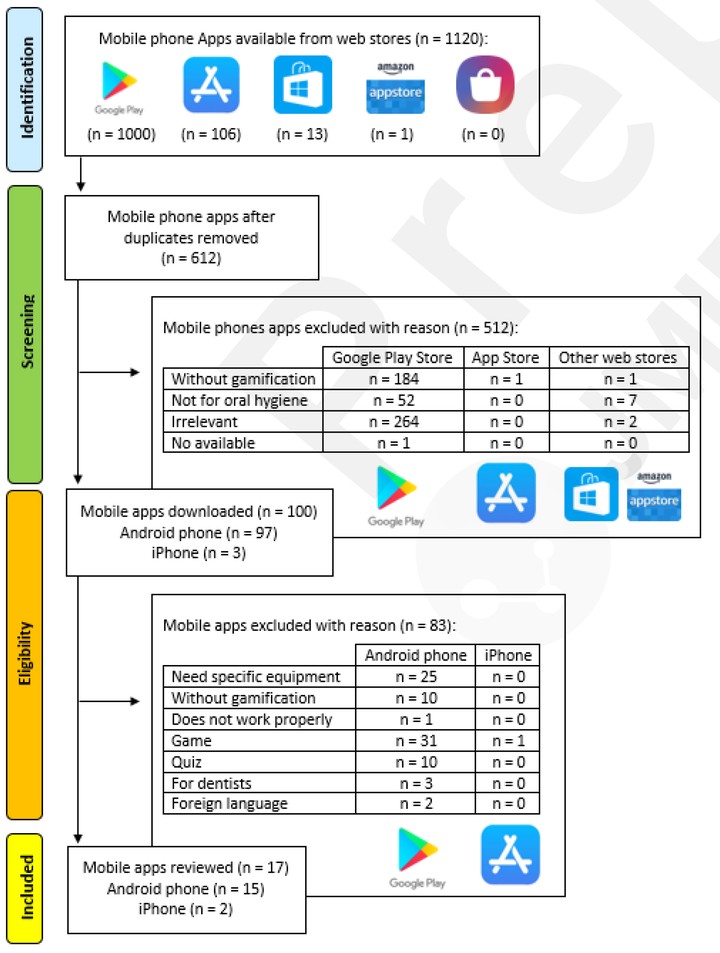The Effects of Gamification and Oral Self-care on Oral Hygiene in Children: a Systematic Review of mHealth Apps
 JMIR mHealth and uHealth
JMIR mHealth and uHealth
Abstrakt
Background: Poor oral hygiene care is a significant public health problem worldwide. Oral healthcare education is a public health priority as the maintenance of oral hygiene is integral to overall health. Maintaining optimal oral hygiene among children is challenging and can be supported by using relevant motivational approaches. Objective: The primary aim of this study was to identify mobile phone applications (apps) that include gamification features focused on motivating children to learn, perform and maintain optimal oral hygiene. Methods: We searched six online app stores using four search terms (‘oral hygiene game’, ‘oral hygiene gamification’, ‘oral hygiene brush game’ and ‘oral hygiene brush gamification’). The PRISMA (Preferred Reporting Items for Systematic Reviews and Meta-Analyses) guidelines were followed throughout the review. We identified gamification features, identified whether apps were consistent with evidence-based dentistry, we performed a quality appraisal with the user version of the app rating scale (uMARS) and we quantified the number of behaviour scores (Behaviour change score, uMARS score, and Coventry, Aberdeen and London-Refined [CALO-RE] score) using three different instruments that measure behavior change. Results: Of 612 potentially relevant apps included in the analysis, 17 met the inclusion criteria. On average, apps included 6.87 (standard deviation [SD] = 4.18) out of 31 possible gamification features. The most frequently used gamification features were time pressure (n = 16; 94%), virtual characters (n = 14; 82%) and fantasy (n = 13; 76%). The most common oral hygiene evidence-based recommendation was brushing time (2-3 minutes), which was identified in 94% (n = 16) of apps. The overall uMARS total mean for app quality was high (mean [M] = 4.30; SD = 0.36), with good subjective quality (M = 3.79; SD = 0.71) and perceived impact (M = 3.58; SD = 0.44). Sufficient amount of behavior change techniques based on three taxonomies was detected in each app. Conclusions: The majority of the analyzed oral hygiene apps included gamification features and behaviour change techniques to perform and maintain oral hygiene in children. Overall, the apps contain some educational content consistent with evidence-based dentistry and high quality background for performing oral self-care in children; however, there is scope for improvement.